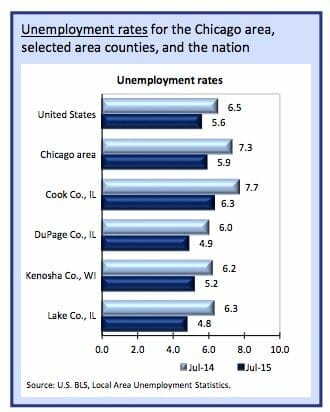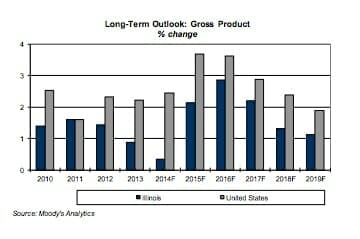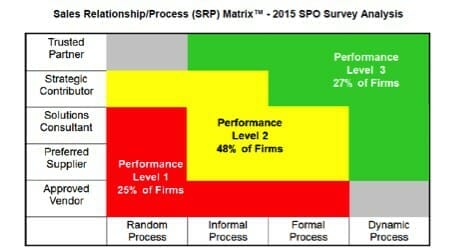
Having to deal with counter offers is one of the most difficult challenges facing successful companies looking to grow and attract great talent.
Great employees are hard to find, highly sought after and almost always gainfully employed. No employer wants to lose people like this without a fight, so when an employer learns that one of the their best employees is intending to resign, in all probability there is going to be a strong effort to prevent them from going.
In our business, which is based entirely on finding elite level sales people, counter offers arise regularly. Over the years, however, we have developed useful ways of mitigating their impact on our ability to recruit the people our customers need to hire. Some of these tactics can be used in isolation, or combined to increase the chances of landing the desired candidate:
Be an Employer of Choice
The best defense against counter offers is to offer things that no other employer can offer. Market leaders explicitly understand that becoming known as a great place to work and build a career significantly lessens the impact that a counter offer has on a highly desirable candidate. Any employer can offer more compensation, but a company that is known as an employer of choice can offer not only a great financial opportunity, but also a great career opportunity – which is always very difficult for other employers to match.
Stay Close to the Candidate
When someone decides to interview for a new position, they are likely seeking something they are not receiving from their current employer. The recruiting employer has the advantage of discussing these matters with the prospective hire and offering a career opportunity that caters to the candidate’s current objectives, needs, and mindset. When a mutually agreeable offer is made and the candidate informs their current employer that they will be resigning, the current employer may well be caught off guard and not be able to offer all the things that the competing employer is offering. This makes it imperative to not only fully understand the candidate’s real career objectives and motivations for making a change, but also to stay in very close contact throughout the recruiting process so as to be aware of any issues or mood changes as they arise.
Trial Resignation
During advanced stages of engaging a target candidate, have a discussion about the likelihood that they will receive a counter offer from their current employer. Ask the candidate whether they expect a counter, how they will feel about this and how they will respond. Consider conducting a role play where you present a counter offer to the candidate to assess the degree to which they have thought through their response, and how emotionally committed they are to leaving their current employer. At worst, this will help identify any addressed obstacles that may stand in the way of hiring this person away from their current job.
I recall the negotiations with one particular highly coveted candidate. We met the candidate’s financial requirements, and although money is always a factor in making career moves, the candidate had expressed that their primary motivation for making the change was to take advantage of the career opportunity that was being offered. They claimed that no amount of money would make them pass up this opportunity. To see where we were really at, I role played a resignation conversation between the candidate and their current employer, with me assuming the part of the latter. It went something like this:
Candidate: I would like to inform you that I am resigning.
Me/Current Employer: I am sorry to hear that. Is your decision final?
Candidate: …Yes
Me/Current Employer: Can you tell me why are leaving?
Candidate: I feel it is time for me to move on.
Me/Current Employer: Is there anything I can do to make you change your mind?
Candidate: I am sorry, not really.
Me/Current Employer: If I raise your base salary by $20k and add a new 10% bonus, would you be open to reconsidering?
Candidate: Uh…wow…well…uh…yes.
Boom! I knew right there we had not yet fully secured the candidate’s commitment to make a move and more work was required to understand the candidate’s real motivations.
Get Compensation Right
While there is a school of thought that money is not the most important aspect in attracting great talent, we see time and time again that even small differences in compensation have an enormous impact on a candidate’s desire to change employers.
Yet a surprising number of companies will spend a lot of time finding and courting the ideal candidate, discussing a financial offer and then making a formal offer which includes compensation that is lower than the candidate is currently making. Hiring employers that make these kinds of offers either overvalue the career opportunity that they are offering or assume that a candidate will want to negotiate. Big mistake. In many such cases, the candidate, having been insulted by the recruiting employer, will go back back to their current employer, let them know they are contemplating resignation, and ask for a raise in exchange for staying. Many employers will comply and the candidate is off the market.
even small differences in compensation have an enormous impact on a candidate’s desire to change employers.”
An approach with a better chance of success involves knowing what a targeted candidate wants, and making a great first offer that meets or even exceeds their expectations. This takes compensation off the table as a potential issue in the offer negotiation and allows the discussion to focus on other aspects of the unique career opportunity that is being offered. It also doesn’t hurt to have some budget flexibility in order to sweeten the compensation offer if required to close the right candidate.
Out Counter the Counter
At some point later in the process of courting a particular candidate, have a discussion with them about the likelihood that they will get counter offer from their current employer. Be upfront and inform the candidate that you would like a chance to speak after the counter is received in case there is chance to make a better offer. While an employer generally wants to avoid a bidding war for talent, there is no escaping the reality that by targeting the best talent in the industry, you are already in a bidding war.
De-risk
Anyone that leaves an employment position to join another company is assuming risk. This is particularly true with high achieving people who have an unblemished track record of success. Recruiting employers often underestimate this risk and the power of the status quo. Even if a great career opportunity is presented to a potential hire, they may be inclined to pass on the opportunity and accept a counter offer in order to stay with their current employer since they have a reasonable likelihood of continuing their success. This reality makes it incumbent on the recruiting employer to thoroughly map out how the candidate will be successful and how every detail has been taken care of including contingencies for unexpected events.
To your success!
Photo Credit: JD Hancock via Compfight cc
relpost-thumb-wrapper
close relpost-thumb-wrapper
Eliot Burdett
Eliot received his B. Comm. from Carleton University and has been honored as a Top 40 Under 40 Award winner.
He co-authored Sales Recruiting 2.0, How to Find Top Performing Sales People, Fast and provides regular insights on sales team management and hiring on the Peak Sales Recruiting Blog.
Latest posts by Eliot Burdett (see all)
- 20 Of Our Favorite Books About Sales Management and Sales Leadership – October 20, 2023
- How To Make Progress On Your Sales Goal Without A Sales Leader – September 15, 2021
- Augment Your Recruiting Strategy During “The Great Resignation” – July 26, 2021



 Chicago area.”
Chicago area.” Sources, including SHRM, credit Chicago’s strong commitment to technology as a harbinger of growth in the community. The city sponsors a technology incubator called 1871 that’s located in Chicago’s legendary – and gigantic – Merchandise Mart building. The incubator is now credited with being “the home to almost 400 startup companies, and 40 companies have graduated from 1871 to create 500 local jobs.”
Sources, including SHRM, credit Chicago’s strong commitment to technology as a harbinger of growth in the community. The city sponsors a technology incubator called 1871 that’s located in Chicago’s legendary – and gigantic – Merchandise Mart building. The incubator is now credited with being “the home to almost 400 startup companies, and 40 companies have graduated from 1871 to create 500 local jobs.” Naysayers will caution that the fiscal problems at the city and state level threaten long-term growth.
Naysayers will caution that the fiscal problems at the city and state level threaten long-term growth. 




























